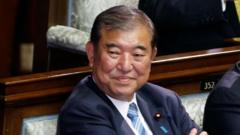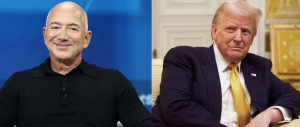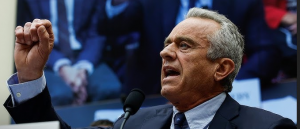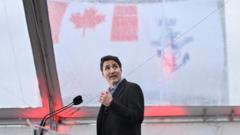Following a significant setback in Japan's lower house elections, Prime Minister Shigeru Ishiba has successfully retained his position after a parliamentary run-off vote. Despite losing the Liberal Democratic Party's (LDP) majority in last month’s election, Ishiba triumphed over main opposition leader Yoshihiko Noda during a recent extraordinary parliament session. The 67-year-old Ishiba inherited the role from Fumio Kishida, who resigned amid a series of scandals that hampered the public’s trust in the LDP.
Ishiba Retains Premiership Amidst Electoral Challenges

Ishiba Retains Premiership Amidst Electoral Challenges
Japanese Prime Minister Shigeru Ishiba navigates post-election turbulence to maintain leadership amid declining LDP support.
Ishiba, a former defense minister known for his outspoken views, now faces pressing challenges both within his party and on the broader economic landscape as Japan grapples with issues like inflation and a sluggish economy. His leadership will require navigating the complexities of a minority government, particularly as he needs cooperation from opposition parties to pass any forthcoming bills or budget, heightening concerns of political gridlock.
The political backdrop that ensnared Ishiba's predecessor, Kishida, involved scrutiny over the LDP's association with the controversial Unification Church and opaque fundraising practices. Ishiba, who assumed the prime ministerial role in early October, quickly called for a snap election in the hopes of consolidating his authority, but the LDP's poor electoral showing marked its worst performance in over a decade.
In the aftermath of the elections, Ishiba acknowledged the public's wish for the party to reflect on its actions, promising reforms aimed at revitalizing the LDP and addressing pressing economic concerns. His cabinet is expected to undergo some changes, particularly replacing officials who lost their parliamentary seats.
Additionally, Ishiba’s foreign policy stance faces uncertainty, especially with the administration of U.S. President Donald Trump possibly reintroducing protectionist policies that may affect Japanese trade. Ishiba has articulated a dual focus on domestic reforms and strengthening defense spending while also initiating discussions on socially liberal topics, although he strives to align with the LDP’s traditionally conservative stance.
Ishiba's tenure, although solidified, suggests a carefully calibrated balancing act as he endeavors to lead Japan through politically and economically turbulent waters.
The political backdrop that ensnared Ishiba's predecessor, Kishida, involved scrutiny over the LDP's association with the controversial Unification Church and opaque fundraising practices. Ishiba, who assumed the prime ministerial role in early October, quickly called for a snap election in the hopes of consolidating his authority, but the LDP's poor electoral showing marked its worst performance in over a decade.
In the aftermath of the elections, Ishiba acknowledged the public's wish for the party to reflect on its actions, promising reforms aimed at revitalizing the LDP and addressing pressing economic concerns. His cabinet is expected to undergo some changes, particularly replacing officials who lost their parliamentary seats.
Additionally, Ishiba’s foreign policy stance faces uncertainty, especially with the administration of U.S. President Donald Trump possibly reintroducing protectionist policies that may affect Japanese trade. Ishiba has articulated a dual focus on domestic reforms and strengthening defense spending while also initiating discussions on socially liberal topics, although he strives to align with the LDP’s traditionally conservative stance.
Ishiba's tenure, although solidified, suggests a carefully calibrated balancing act as he endeavors to lead Japan through politically and economically turbulent waters.





















